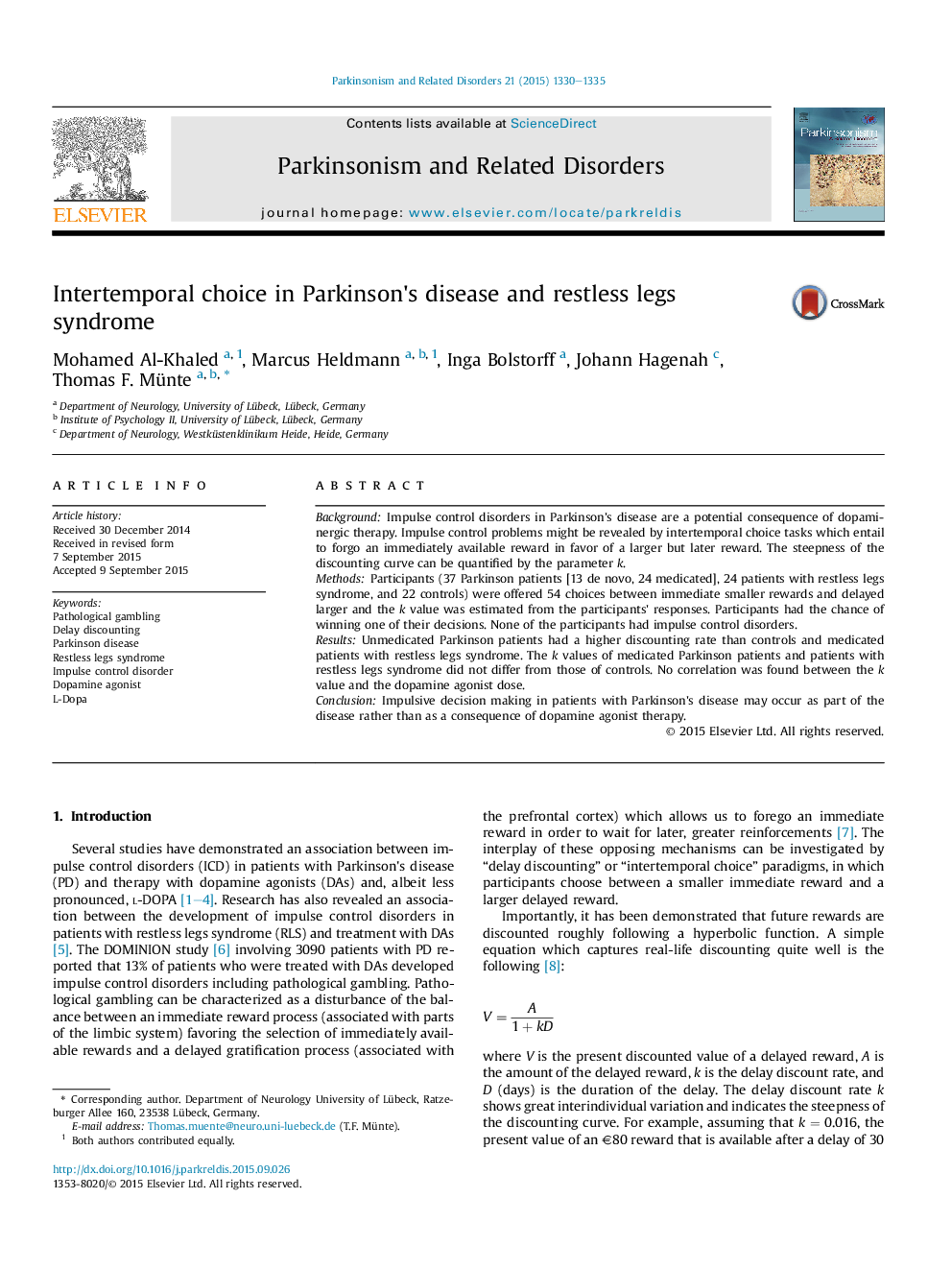| Article ID | Journal | Published Year | Pages | File Type |
|---|---|---|---|---|
| 1920485 | Parkinsonism & Related Disorders | 2015 | 6 Pages |
•De novo Parkinson patients show steeper delay discounting than healthy controls.•Compared discounting functions across several groups of participants including restless legs and de novo patients.•Steeper discounting is likely a trait marker of Parkinson's disease.
BackgroundImpulse control disorders in Parkinson's disease are a potential consequence of dopaminergic therapy. Impulse control problems might be revealed by intertemporal choice tasks which entail to forgo an immediately available reward in favor of a larger but later reward. The steepness of the discounting curve can be quantified by the parameter k.MethodsParticipants (37 Parkinson patients [13 de novo, 24 medicated], 24 patients with restless legs syndrome, and 22 controls) were offered 54 choices between immediate smaller rewards and delayed larger and the k value was estimated from the participants' responses. Participants had the chance of winning one of their decisions. None of the participants had impulse control disorders.ResultsUnmedicated Parkinson patients had a higher discounting rate than controls and medicated patients with restless legs syndrome. The k values of medicated Parkinson patients and patients with restless legs syndrome did not differ from those of controls. No correlation was found between the k value and the dopamine agonist dose.ConclusionImpulsive decision making in patients with Parkinson's disease may occur as part of the disease rather than as a consequence of dopamine agonist therapy.
